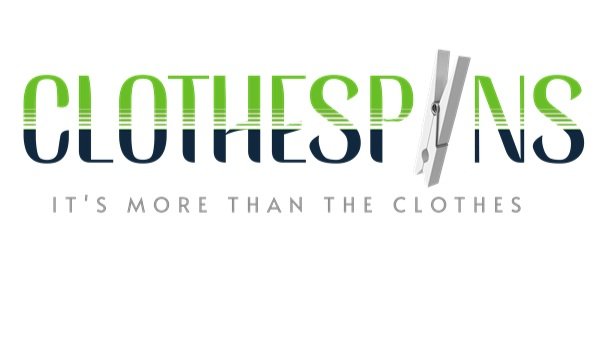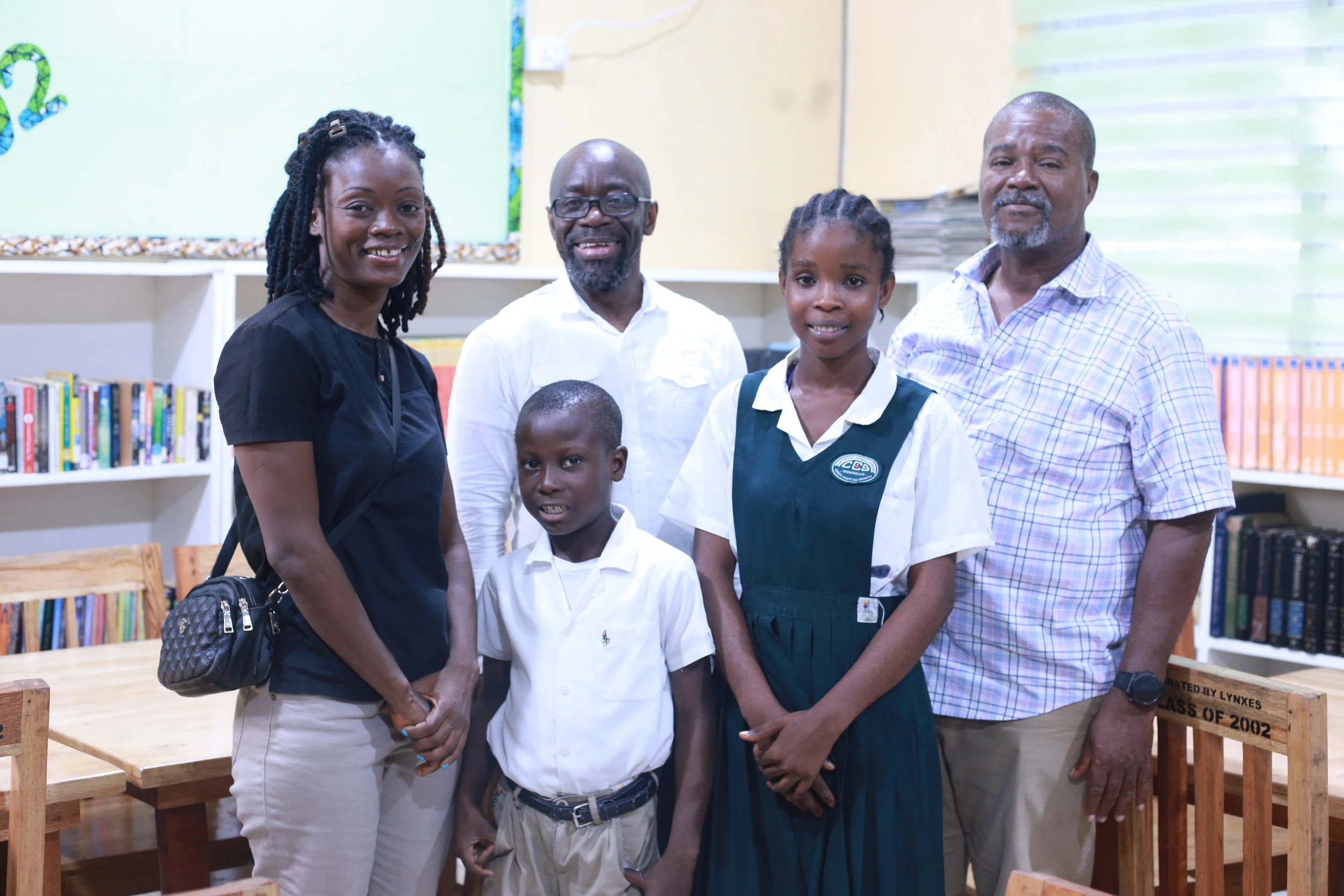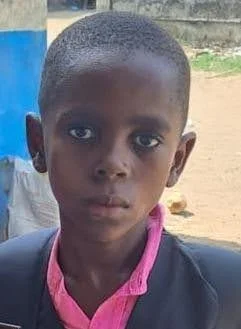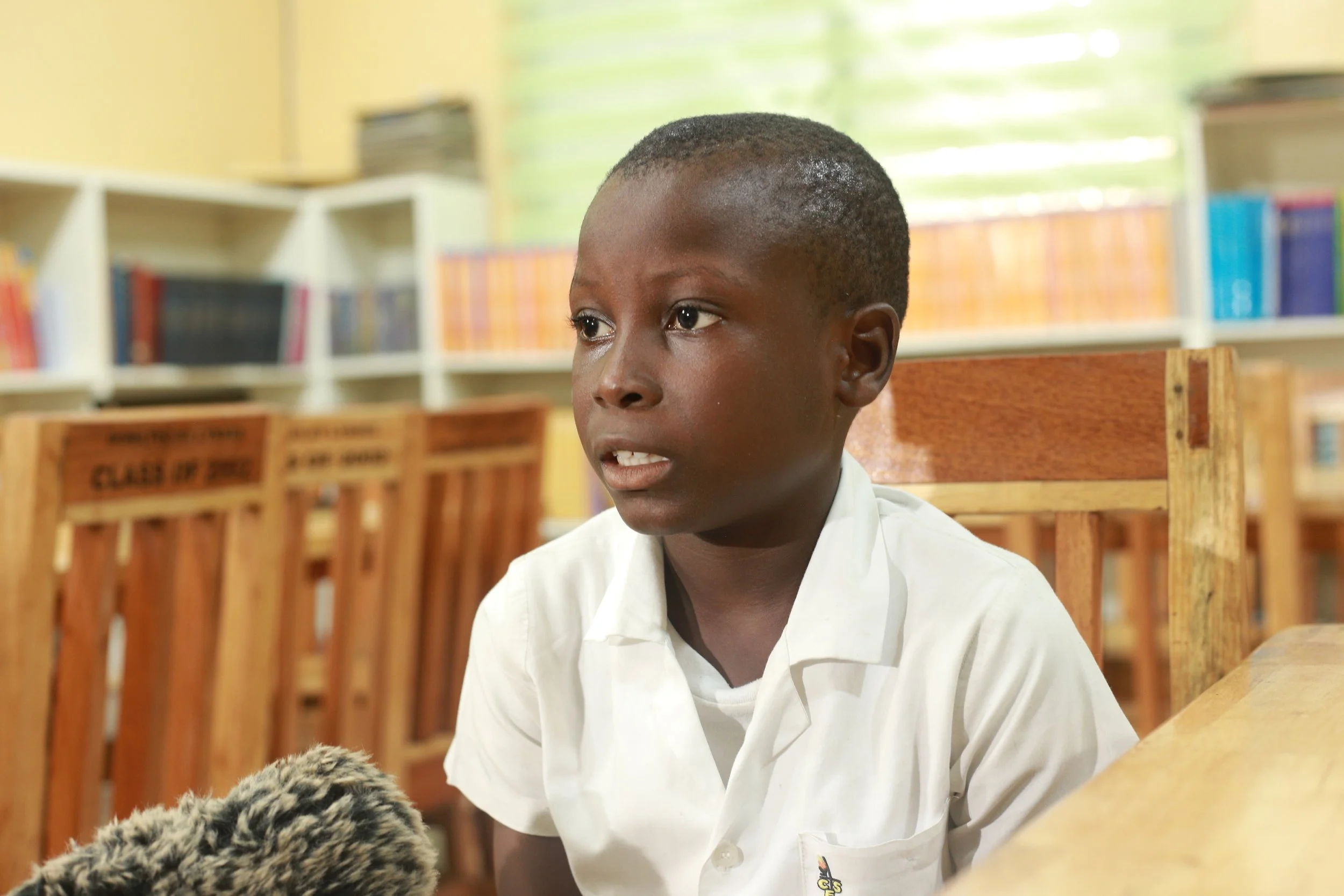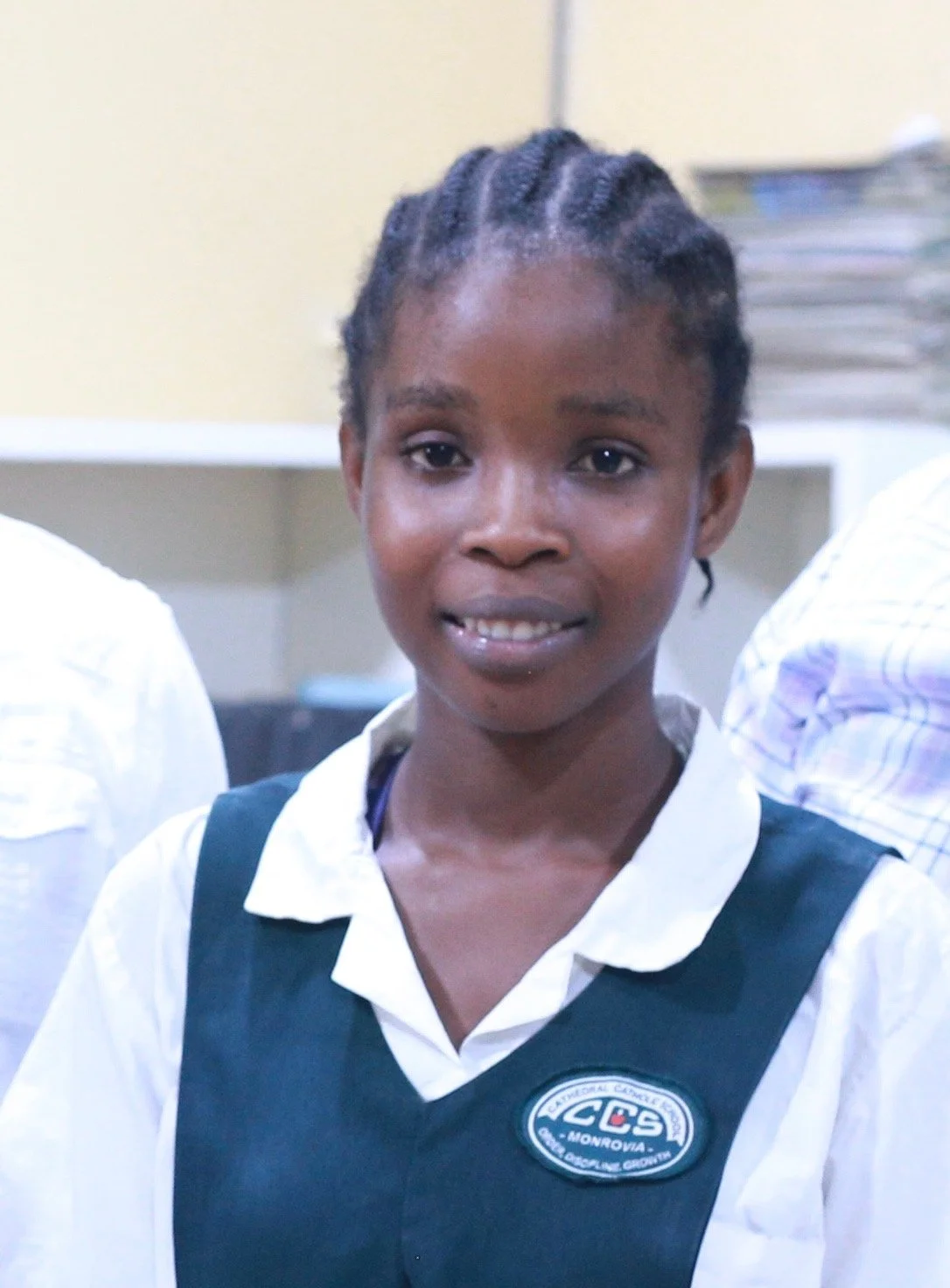First Year Overview
Introduction
Liberia, West Africa, was chosen as a pilot program for Clothespins. We were approved as an NGO (Non-Government Organization) by the Liberian government to operate in Liberia. We developed a recruitment process, identified target communities, schools, and students. Below is a report on our first year of operation in Liberia.
Status Update
We envisioned partnering with three communities to recruit students for the 2024/2025 academic year. However, due to limited funding and the school having already begun, we settled on two communities.
Selected Schools:
Catholic Cathedral High School (West Point Community)
Paynesville SDA Elementary (King Gray Community)
Six students were selected to attend the chosen schools. Of the six students selected, four were males, and two were females. We strived for gender balance. However, two females were below their grade level and overaged for the classes. For example, a fifteen-year-old girl still in the first grade could not be considered for fear of being bullied, which would have affected her performance and psychological well-being. The schools selected are well-regarded for their historical performance.
Beneficiaries’ Stories
Clothespins’ beneficiaries have demonstrated progress. Below are the stories of two of them.
Success Story 1: Encouraging Josiah with Education and Hope
Josiah Smith is a 12-year-old from the King Gray community. He is one of three children, and his father left them when he was very young, leaving the family to fend for themselves. He lives with his mother, and her unemployment status has caused them to struggle to make ends meet. They occasionally receive support from friends and relatives.
Josiah’s education stopped abruptly at the 3rd-grade level, leaving him with limited opportunities for a better future. Instead of going to school, He spent his days on the beach, helping local fishermen with their catch, swimming in the ocean, or simply playing on the beach. Unfortunately, the beach is a hotspot for drug pushers and other negative influences, posing a constant risk to his well-being.
Thanks to the Clothespins, Josiah is back in school. He is determined to complete his education and help his family rise above poverty. His mother, who had felt helpless, is overjoyed to see her son’s progress. The scholarship has not only provided Joe with the opportunity to learn but also given him hope for a brighter future that doesn’t include the dangers of the beach.
Success Story 2: Empowering Angel with Education and Hope
Angel Kamara is a 14-year-old girl from the West Point Community who has faced many hardships. She is the last of five (5) children. Her father passed away some years ago, leaving her mother, a charcoal retailer, to care for the family. Despite her best efforts, Angel’s mother struggled to support her large family, thus eliminating the possibility of attending school.
Angel was in the third grade when financial difficulty pulled her out of school. As a result, she decided to help her mother with her retail business, and her dreams of education and a better future seemed distant.
However, Angel’s life improved after she received a Clothespins scholarship. She is excited to resume her education. The scholarship not only provides her with the resources needed for her studies but also gives her hope and motivation to work hard and achieve her goals.
Angel’s mother, though still struggling to support her children, is grateful for the scholarship that has given Angel a chance to pursue her education. Angel is focused on catching up on her missed lessons and is determined to finish school. With the support of Clothespins, she now sees a future filled with possibilities, one where she can break the cycle of poverty and uplift herself and her family. The scholarship has given Mary more than just an education- it has given her hope and a renewed sense of purpose.
Success Story 3: Successful community engagement
In Liberia, it is a common practice for schools, particularly well-known private schools, not to accept new students during the second semester. This practice usually leaves many children, especially those from disadvantaged backgrounds, with little to no access to quality education once the school year is well underway. However, through our local team's tireless efforts and strategic community engagement, we overcame this challenge and secured spots for our six students in one of Liberia's most respected private schools.
Our team understood the importance of community relationships and worked diligently to demonstrate the value of including these students in the educational system despite the traditional enrollment cutoff. They met with school administrators, teachers, and parents, presenting the students' stories and potential to contribute positively to the school community. Through those discussions, the local team garnered the support and understanding of the school, leading to an agreement to accept the students mid-year.
Although the second semester was almost over, the students were warmly welcomed into their new classrooms and allowed to catch up on what they had missed. This was a breakthrough moment for the students, who had been waiting for an opportunity to attend a school that could provide them with the quality education they deserved. The school community embraced them, and the students quickly adapted to their new learning environment, thanks to the support of their teachers and fellow students.
This success story underscores the significance of community engagement and advocacy in overcoming educational barriers. Our team created opportunities by working with local schools and stakeholders.
Achievements
The program was successfully launched and is operational in Liberia, focusing on the education of students from underprivileged communities.
Established relationships with two key communities (West Point and King Gray).
Six students from the West Point and King Gray communities are now enrolled in school and attending classes regularly.
The foundational structures, including legal registration and school partnerships, have been laid for sustainable growth.
Nine face-to-face meetings were held with the communities, followed by phone calls and six school meetings.
Recommendations
Expand the program to include more communities in the upcoming academic year, thereby reaching a broader range of students.
Develop a more robust monitoring and evaluation system to track beneficiaries' progress and measure the program's impact.
Strengthen partnerships with more schools and local organizations to increase program visibility and support.
Seek additional funding sources to ensure the program's sustainability and growth.
2024/2025 Fundraising Campaign
The goal of this campaign is to raise $60,000.00.
Instead of Six Students, we want to increase the total to 50 Students
$600.00 per Student (tuition, uniforms, fees, books, transportation, etc.)
Total: $30,000.00
Operation
Clothespins Liberia: $15,000.00 (office space, volunteer stipend, transportation, office supplies, etc.)
Clothespins USA: $15,000.00 (office space, supplies, etc.)
